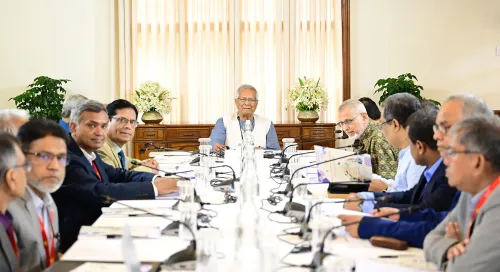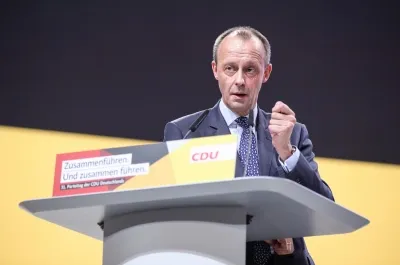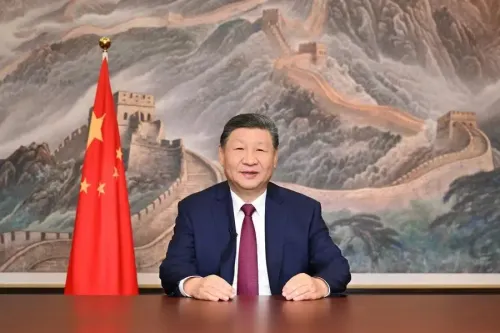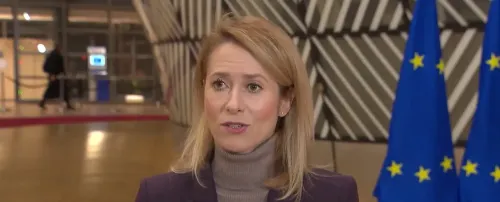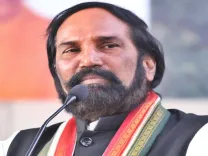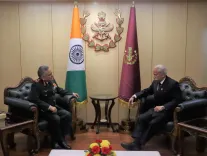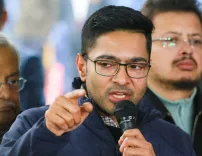How is India Advocating for Global Cooperation Against Terrorism?
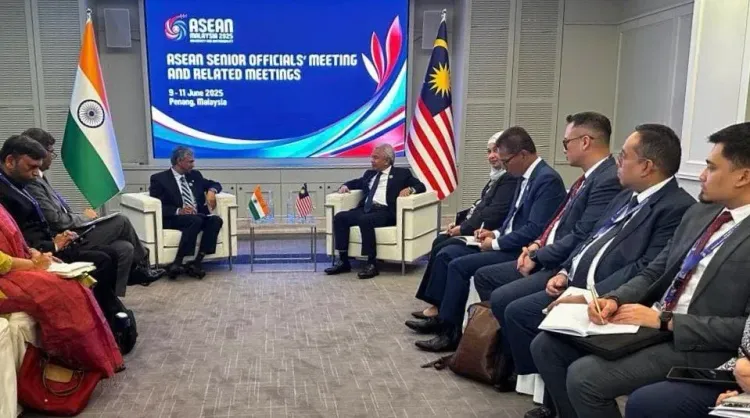
Synopsis
Key Takeaways
- India calls for global unity against terrorism at the East Asia Summit.
- P. Kumaran represents India, outlining key diplomatic positions.
- Strengthening partnerships with ASEAN nations is a priority.
- The EAS marks its 20th anniversary this year.
- Discussions included preparations for upcoming foreign ministers' meetings.
Kuala Lumpur, June 11 (NationPress) On Wednesday, India emphasized the necessity for united efforts to combat the growing threat of terrorism, which endangers the peace, security, and development of the entire region.
During the East Asia Summit Senior Officials' Meeting (EAS SOM) held in Penang, Malaysia, P. Kumaran, Secretary (East) of the Ministry of External Affairs, highlighted the crucial role of the EAS in fostering a free, open, inclusive, and rules-based Indo-Pacific.
Kumaran, who represented India at the summit, articulated New Delhi's stance on both regional and international matters as the leaders-led mechanism commemorates its 20th anniversary this year.
Secretary (East) P. Kumaran also met with Amran Mohammed Zin, Secretary General of Malaysia's Ministry of Foreign Affairs, on the sidelines of the EAS and ASEAN Regional Forum (ARF) SOM in Penang.
"We engaged in discussions to fully realize the India-Malaysia Comprehensive Strategic Partnership established during PM YAB Dato’ Seri Anwar Ibrahim's visit to India in August 2024. I congratulated the Secretary General on the successful adoption of the 'ASEAN Community Vision 2045' under Malaysia's chairmanship of ASEAN. We also explored avenues to enhance India's engagement with ASEAN within the EAS and ASEAN-India Summit framework to strengthen the ASEAN-India Comprehensive Strategic Partnership and exchanged views on other regional and multilateral matters," stated the Ministry of External Affairs (MEA) on X.
The MEA official also met Chung Byung-won, Deputy Minister of Political Affairs in South Korea's Ministry of Foreign Affairs, during the EAS SOM. He congratulated the Deputy Minister on the successful Presidential elections in South Korea and discussed strategies to bolster the India-South Korea Special Strategic Partnership and reinvigorate the bilateral agenda.
On Tuesday, Kumaran met Hajah Johariah Binti Abdul Wahab, Permanent Secretary at the Ministry of Foreign Affairs of Brunei Darussalam, where both parties discussed ways to deepen the partnership between India and Brunei Darussalam, as well as cooperation within ASEAN and other frameworks.
Kumaran also had discussions on bilateral and regional matters of mutual interest with Australia's Michelle Chan, who leads the Office of Southeast Asia.
Earlier on Monday, he engaged with Ambassador Kung Phoak, Secretary of State for Foreign Affairs and International Cooperation of Cambodia. Emphasizing the close relationship between India and Cambodia, they explored opportunities to enhance cooperation bilaterally and within the ASEAN framework.
The East Asia Summit (EAS) Senior Officials' Meeting, which included EAS Senior Officials and the Deputy Secretary-General of ASEAN for the ASEAN Political-Security Community, reviewed the progress of the EAS Plan of Action (2024-2028) and exchanged perspectives on regional and international developments. The meeting also prepared for the 15th EAS Foreign Ministers' Meeting in July and the 20th East Asia Summit scheduled for October 2025.
The EAS stands as the premier leaders-led forum in the Asia-Pacific region. Since its establishment in 2005, it has significantly influenced the strategic, geopolitical, and economic landscape of East Asia, comprising 18 member countries.
Alongside the 10 ASEAN member states—namely Brunei Darussalam, Cambodia, Indonesia, Lao PDR, Malaysia, Myanmar, the Philippines, Singapore, Thailand, and Vietnam—the EAS includes India, China, Japan, South Korea, Australia, New Zealand, the United States, and Russia.


